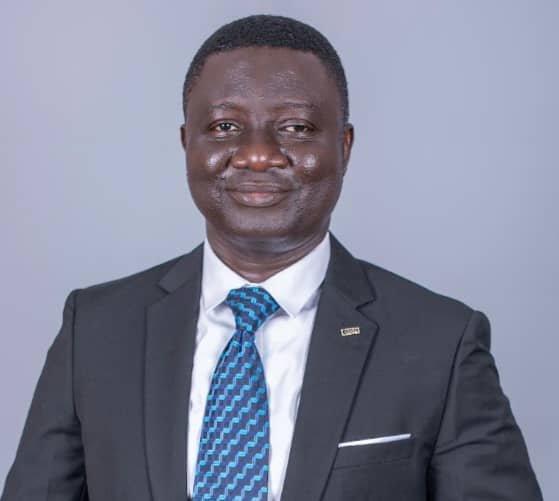News
Tramadol abuse among youth reaches alarming height …FDA, Nat’l Security urged to act

A Reverend Father and Clinical Psychologist at the Eastern Regional Hospital, Dr Isaac Acheampong Sarfo, has warned that the youth, representing Ghana future workforce, could be crippled if nothing is done about the growing abuse of Tramadol.
He said the abuse of the drug has assumed levels that requires an urgent need for collective action to curb it, cautioning that if it was left unchecked, it could cripple the country’s future workforce and derail national development.
What is more worrying now, he stated, was the fact that the drug Tramadol, originally prescribed as a painkiller, is being processed into cakes, drinks, and toffees, making it more accessible and discreet to consume.
In an interview with The Spectator, Rev. Dr Sarfo explained that the drug’s addictive potential was high, whether prescribed or not, because it caused the release of dopamine, a chemical linked to pleasure and calmness.
“It seems as though we’re asleep while the future of our nation is quietly being destroyed. If we don’t act now, these young people will be unable to shoulder future responsibilities, and the entire nation will suffer,” he lamented.
Tramadol has become a drug of choice for a section of the youth for its euphoric and mood-enhancing effects due to its interaction with opioid receptors in the brain.
He explained that over time, users build a tolerance and required higher doses, risking overdose and dependence, alerting that continuous use could overwhelm the nervous system, leading to life-threatening conditions.
Common signs among abusers includes mood swings, emotional instability, hallucinations, depression, and withdrawal from family and social circles.
Abusers also engaged in risky behaviours and suffer from cognitive issues like poor concentration, confusion, and slower reaction times.
“Tramadol abuse can also impact the development of adolescent brains, especially in areas tied to judgment, impulse control, and decision-making. It consequences include academic failure, poor memory, and social maladjustment,” he stated.
Dr Sarfo, who is also the Director of Counselling at the Koforidua Technical University, warned that the healthcare system could become overwhelmed, with rising cases of addiction and mental health challenges.
To tackle this crisis, Dr Sarfo called for a multi-sectoral approach and urged the government, particularly the Food and Drugs Authority (FDA) and National Security to intensify efforts to stem the import and distribution of the drug as well as sales points.
He also appealed to religious leaders to speak out against drug abuse with compassion, and for parents to be more attentive and involved in their children’s lives.
Furthermore, Dr Sarfo called for the establishment of active youth centres that can provide guidance and resources to tackle some of these societal problems.
He advised the youth to engage in important things that could guarantee them a brighter future and disengage from Tramadol abuse which offered no benefit but only led to misery and loss of purpose.
He urged those already affected to seek counselling and rehabilitation, urging all stakeholders work together to save the nation’s future.
By Ama Tekyiwaa
Ampadu Agyeman, Koforidua
Hot!
Speaker of Parliament inaugurates open Parliament Steering Committee, launches action plan

The Speaker of Parliament, Alban Sumana Kingsford Bagbin, has launched the Open Parliament Steering Committee and the Open Parliament Action Plan.
The ceremony was under the theme “Achieving Gender Equality: Action by Action.”
The Speaker highlighted the critical role Parliament plays in translating the will of the people into inclusive legislation, responsive policies, and accountable governance.
“The International Day of Parliamentarianism is worth celebrating, as it offers an opportunity not only to recognise and promote achievements in strengthening democratic governance, but also to pause and reflect on the remaining gaps in institutionalising parliamentary democracy,” he said.
He noted that the event was scheduled to coincide with the International Day of Parliamentarianism to reinforce the importance of open and inclusive governance.
The Majority Leader, Mahama Ayariga, stated that the International Day of Parliamentarianism is intended to recognise the vital role Parliaments play globally as pillars of democratic governance.
He noted that this marks the first time Ghana is formally observing the day.
“The gravity of our observance is further accentuated as we convene to witness the launch of the Open Parliament Action Plan by the Open Government Partnership Caucus,” he said.
Delivering a statement on behalf of the Minority Leader, Alexander Kwamena Afenyo-Markin, the Deputy Minority Leader, Patricia Appiagyei, described the Open Parliament Action Plan as a transformative initiative aimed at strengthening the relationship between Parliament and the public.
She said the plan represents a bold commitment to making Parliament more transparent, accessible, and responsive to the needs of Ghanaians.
The Clerk to Parliament, Mr. Ebenezer Ahumah Djietror, described the launch as a key milestone in the effort to build a citizen-focused and accountable Parliament.
He added that the International Day of Parliamentarianism is a call to action to recommit to the highest standards of public service and democratic accountability.
The inauguration was attended by a wide range of stakeholders, including the Majority and Minority Members of Parliament, members of the Open Parliament Steering Committee, the Open Government Partnership (OGP) Caucus, Parliamentary Network Africa, representatives from civil society organisations, members of the diplomatic corps, traditional and religious leaders, student bodies, the Parliamentary Press Corps, and other media partners.
Hot!
NACOC declares drug menace a national emergency

The Parliamentary Committee on Defence and Interior has paid a working visit to the Narcotics Control Commission (NACOC) to engage with its leadership and assess operational challenges hampering the fight against illicit drugs.
In a detailed presentation, Dr. Basha Ligbi, Head of the Commission’s Research Bureau, highlighted critical setbacks including broken body scanners at airport terminals, inadequate office infrastructure, overcrowded detention facilities, and deteriorating vehicles.
He also called for the Commission’s headquarters to be reclassified as a security zone, citing growing security risks due to private encroachment and nearby high-rise developments.
Director General of NACOC, Brigadier General Maxwell Obiba Mantey, described the escalating drug trade as a national emergency, warning that drug barons now rival armed robbers in threat level and are gaining influence at the highest levels.
He appealed for stronger institutional support and morale-boosting interventions to preserve the integrity of NACOC officers.
Chairman of the Committee and MP for Builsa North, James Agalga, assured the Commission of the Committee’s commitment to escalate the concerns to Parliament and engage key justice sector stakeholders to fast-track reforms in support of NACOC’s mandate.














